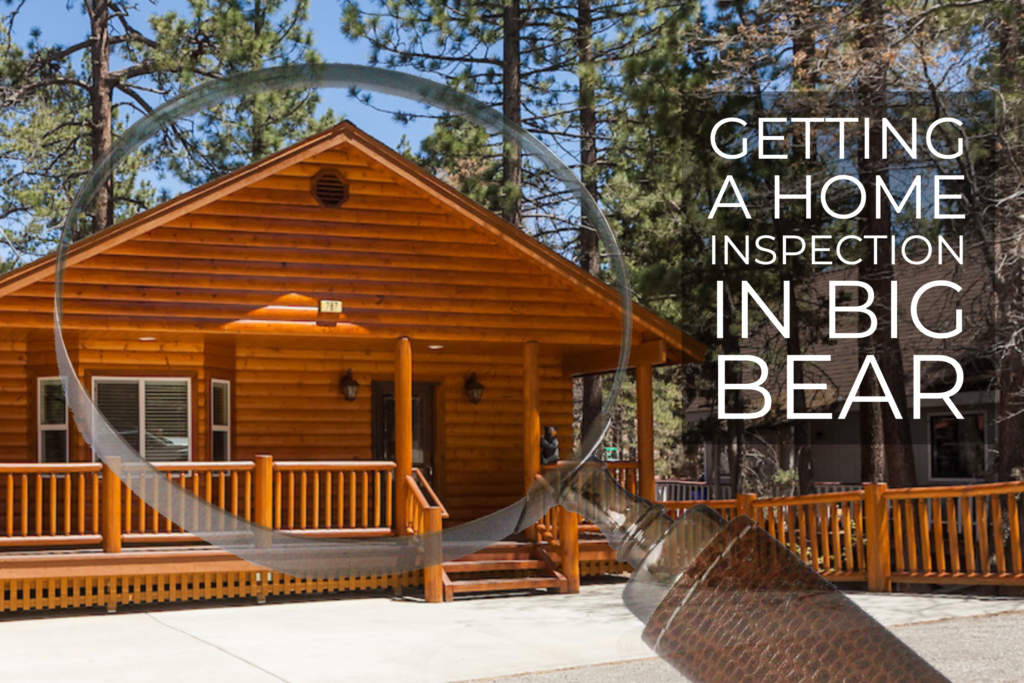 5 Things You Should Know About Getting a Home Inspection in Big Bear
5 Things You Should Know About Getting a Home Inspection in Big Bear
So your offer on a Big Bear cabin was accepted, and you’ve just opened escrow! Now what?
1. Schedule the home inspection ASAP
The day you open escrow, you should schedule a home inspection. Inspectors can be booked weeks in advance, so it’s important to schedule an inspection as soon as possible. The window of time for buyer investigations is typically 17 days, though could be shorter or longer based on what was agreed upon in the contract. This is when the buyer has an opportunity to do as much “investigation” of the property prior to removing the physical contingency. It’s important not to wait until the last minute to get a home inspection report so that you have ample time to understand any defects and subsequently ask for repairs or credit. It takes time for the home inspector to prepare an official report. Once you have the report, you may want to call local contractors (plumbers, electricians, etc.) to prepare estimates for repairs, which you can then include in your request for repairs.
2. Choose your inspector wisely
You should choose your own home inspector. Agents can recommend inspectors, but in the end the decision is ultimately the buyer’s. Conflicts can arise when agents pick an inspector and schedule the appointment for you. If your agent picks an inspector for you, and later after the close of escrow you begin to discover defects that were not in the report, you might feel misled. Therefore, it is imperative that you personally speak with the inspector who will perform the work beforehand. Connecting with your home inspector before the report is completed and paid for will give you a chance to ask questions, express concerns, and ultimately choose the inspector that you feel will provide you with the best service.
Choose a local inspector!
Each environment poses a unique set of challenges. Mountain environments are different than beach environments or desert environments. A home inspector who is accustomed to the nuances of beach properties may not be as well versed about homes at high-altitude with temperatures below freezing. A cabin in the woods faces different problems than a condo in the desert. For your Big Bear property, make sure you choose an inspector who has experience with the area. If you do choose an inspector from off the mountain (or as locals would say, “down the hill”), make sure you ask if he is comfortable with mountain homes. Does he know what a stop and waste valve is? Is he knowledgeable about local building codes? A home inspector who does not have experience with Big Bear homes may miss something very important, or make mistakes in the report. You want to be as well educated about your new house as possible!
3. Do your due diligence
Once you receive the completed inspection report, ask questions, do research, get quotes and bids for repair – do as much due diligence as possible. Your agent can advise you on what type of inspections should be made and suggest items to look out for, but at the end of the day, your investment property is your responsibility. Make sure you understand what you are taking on. After gathering your information, you can then make an informed decision on how much credit and/or what repairs should be requested.
4. Be realistic with repair requests
Items on the home inspection are not a “honey-do” list for the seller. Many homes in Big Bear are older, built in the 1950s through the ’80s. Expect a laundry list of items on the home inspection report ranging from cosmetic issues to large and material defects. Health and safety concerns should be prioritized. Try not to nit-pick and request every item on your report to be repaired or credited. Presenting the seller with a long to-do list may overwhelm the seller. Sometimes sellers get so turned off by a lengthy list that they refuse to do anything! Try to focus on the items that affect health and safety and be reasonable with your request.
5. Ask for a credit in lieu of repairs
Sometimes the best plan of action is to request a credit in the form of a dollar amount to cover part or all of the cost of repairs you would like to be completed. There are a couple of reasons that this is a good approach. For one thing, you would have the benefit of having the repairs done by contractors of your choice after the close of escrow. You have more control over the amount and quality of work being done. If you ask the seller to handle repairs, you aren’t guaranteed that the work will be done to your satisfaction. The other reason asking for a credit in lieu of repairs may be a good idea is that it may increase the likelihood that the seller will agree since he will not have the extra headache of getting bids and hiring contractors himself.
The home inspection is one of the most important things you will do while in escrow and during your investigation contingency period. Do it right and you will know what you are buying and minimize unwelcome surprises in the future.



Leave a Reply